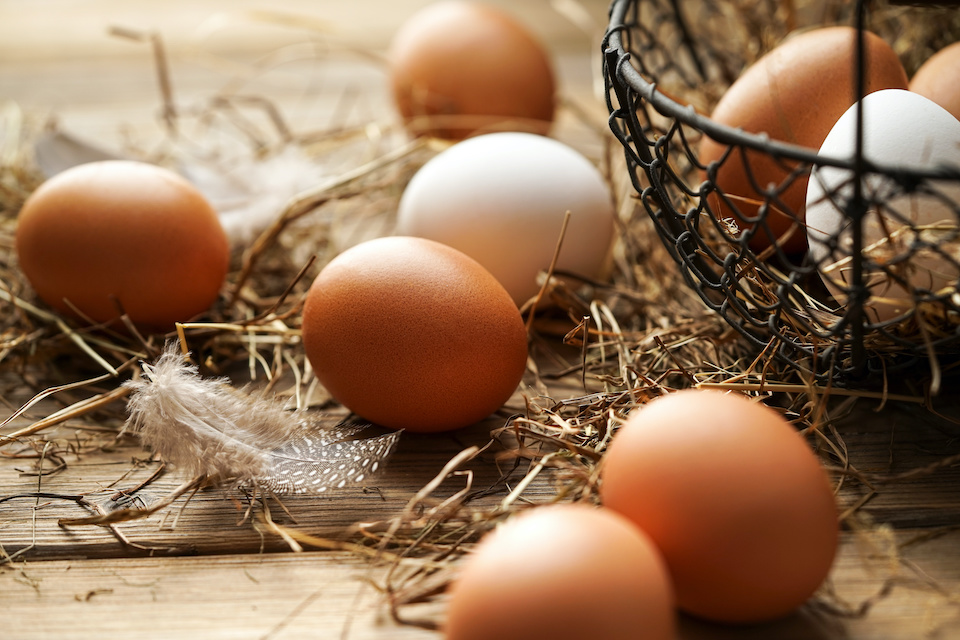So, you have decided to get a few backyard hens. I congratulate you on this The chicken movement is on fire, even in urban areas, as more and more people realize the benefits of having fresh farm eggs at their fingertips. Well, as long as your girls are laying, that is. Contrary to what you might think, there are a few key things to consider to ensure your chickens produce healthy and nutritious eggs consistently. Let’s take a look at how you can be sure you are always in eggs!
Although backyard chickens are pretty hardy – they can be temperamental as well. Just as you and I need certain things to be healthy, so do chickens. Healthy chickens lay healthy eggs. Keep this in mind as you are setting up and caring for backyard chickens.
You need to consider that chickens are born (like humans) with a preset number of eggs that they will lay in their lifetime. No matter what you do – you will not be able to make your chicken lay more than this preset amount.
If egg production is essential, here are some ways to be sure that you get the most out of your hens.
Choose the right breed
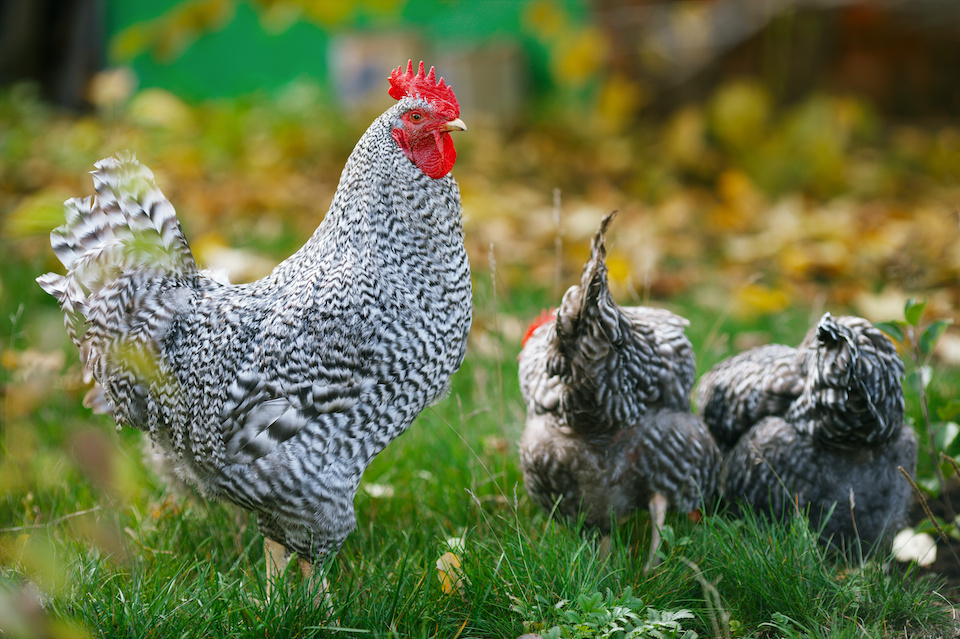
Some breeds of chickens are better producers than others. Here are a few breeds that are excellent layers, even in the winter.
- Rhode Island Red – This cold-hardy breed is one of the best laying hens you can have.
- Sussex – These friendly birds have stocky bodies with small combs, which means they are great for winter weather.
- Buff Orpingtons – These are very calm chickens, great for kids.
- Plymouth Rock – There are several varieties of this chicken that do well laying all year long. They are also very friendly.
Keep the coop warm and dry
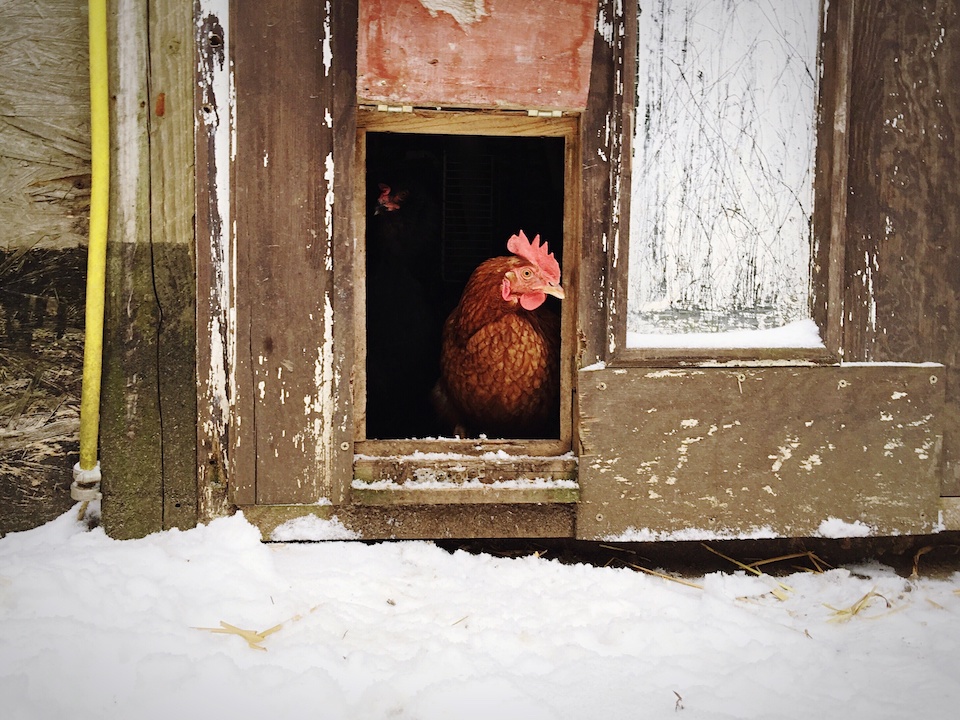
Chickens lay the most eggs when they are warm and dry. If you live in an area that gets a lot of wet and cold weather, be sure to seal your coop to prevent drafts and provide plenty of places for chickens to get up off of the ground. You might hear some arguments against having a sealed coop as it cuts off airflow. However, you can have the coop sealed if your hens have plenty of outside room to roam during the day – this outdoor time provides plenty of fresh air.
Play music in the coop

As strange as it seems, one farmer found that playing classical music for his hens resulted in twice the normal egg production. When he was building a barn close to the chicken coop and was listening to opera music, the farmer discovered that his hens started laying eggs like crazy. Of course, your hens may prefer country music or pop. For the fun of it – take your radio out to the coop and give this a try!
Light it up
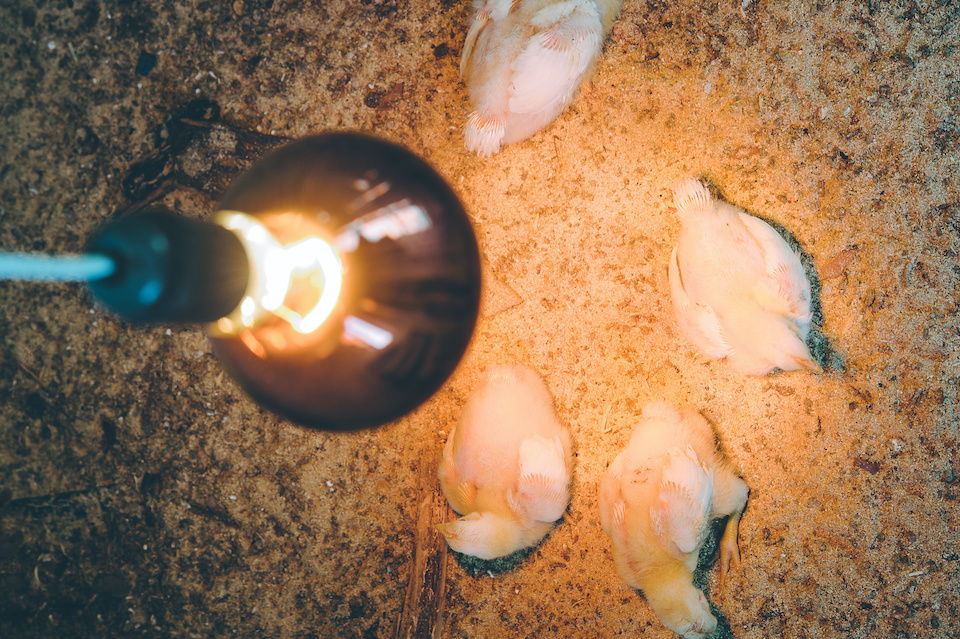
Many people are shocked when their chickens are producing a ton of eggs all summer long and suddenly stop laying when the weather cools. There is a good reason for this. Chickens lay eggs because they are internally driven to reproduce. When a chick has poor odds for survival in the winter, a hen’s body shuts down to protect the endocrine system. Light triggers this incredible phenomenon. Shorter days mean fewer eggs, and many chickens stop producing altogether during the winter.
It may seem that the simple solution to winter, low-light egg production is to provide a heat lamp. In reality, this is somewhat controversial as it disrupts a chickens’ normal routine and prevents them from taking an egg-laying break in the winter. Giving them this seasonal break makes sense if you plan to keep your chickens for the duration of their natural life (about 5-10 years). However, if you are keeping hens for production only, go ahead and give them a warming light in their coop. To use a lamp with a secure guard appropriately, have a timer that turns a light on about 4 am and off at about 6 pm. Keep in mind, there is a difference between using a regular light bulb and a heat bulb. Do not use a heat bulb if you have a coop filled with dry leaves, straw, or woodchips. Basically, avoid using it around anything that is flammable.
Clean water and a balanced diet
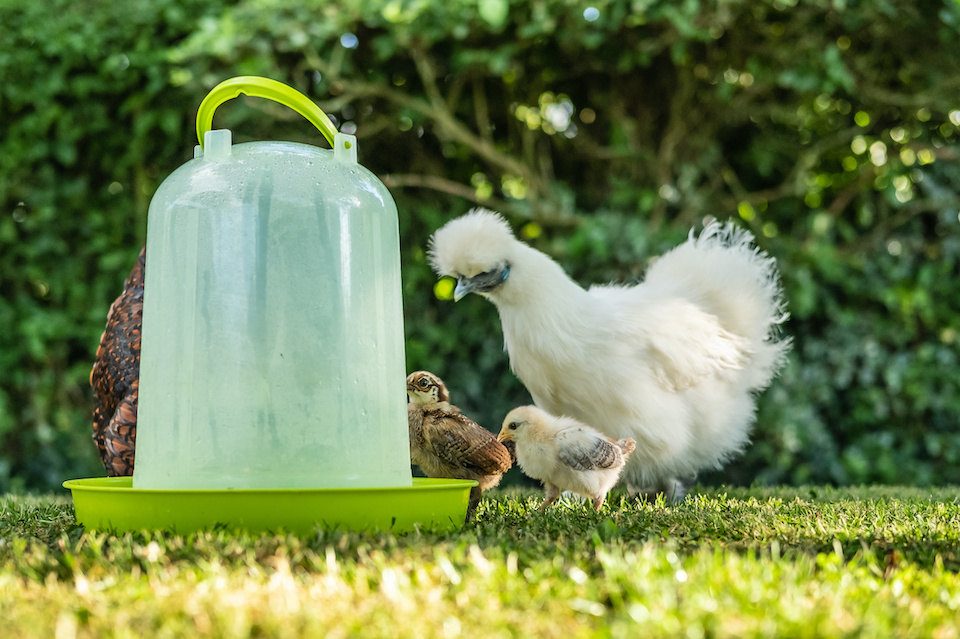
To keep your chicken coop clean, keep feeders outside the coop in a chicken run. When it comes to water, however, offer fresh water in both the coop and the run. You can sprinkle a little grain on their bedding at night so that your hens don’t get bored and start picking on each other before you let them outside in the morning. Select a complete layer blend to keep your birds healthy and producing. A good feed will contain between 16-20% protein along with omega-3’s. Also, look for prebiotics, probiotics, calcium, and magnesium. The best way to feed chickens is to allow access to fresh food all day long.
Don’t forget grit. Birds don’t have teeth to break down their food for digestion. When chickens eat, the food goes into the crop, where it is stored and mixed with saliva. After this, it goes to the stomach and mixes with digestive juices. From here, it goes to the gizzard, which contains small stones that the bird has eaten to grind up food for digestion. Providing grit (tiny stones) for chickens helps with the digestive process. Keep in mind that although limestone and oyster shells are great for hard shells, they are not a good substitute for grit because they are too soft.
If thin eggshells are a problem, supplement with oyster shells, which provide calcium. Use 2 pounds of oyster shells for every 100 pounds of feed. Chickens will readily gobble up table scraps as well, but you need to be careful not to overfeed. Never give your hens more table scraps or treats than they can eat in twenty minutes or so. Freshen water at least twice a week and keep it topped up in between. A fun trick to keep your chickens busy is to toss a few corn cobs into their water bucket.
Outdoor playtime is essential
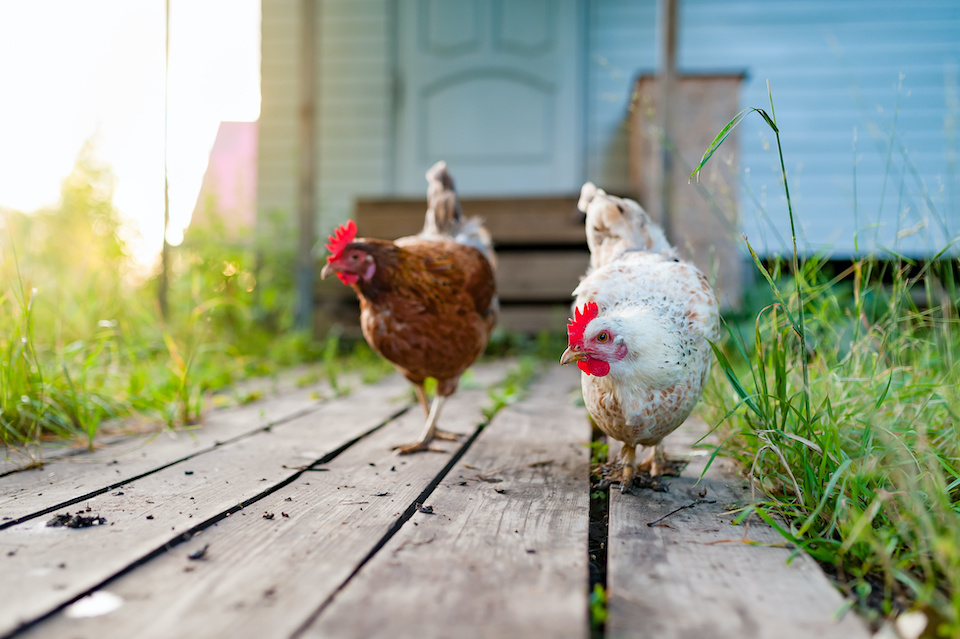
Adult chickens are healthier if they spend time in the great outdoors, even during the winter months. Keeping feeders outside in the chicken run encourages your girls to get out and get some sunshine and fresh air. Of course, if you are in the middle of a blizzard, keep the doors shut. But otherwise, once the sun is out, encourage your hens to get outdoors. To help them get out and move, create a little compost pile in their run – they will have fun digging through all of the goodies.
Keep them safe and stress-free
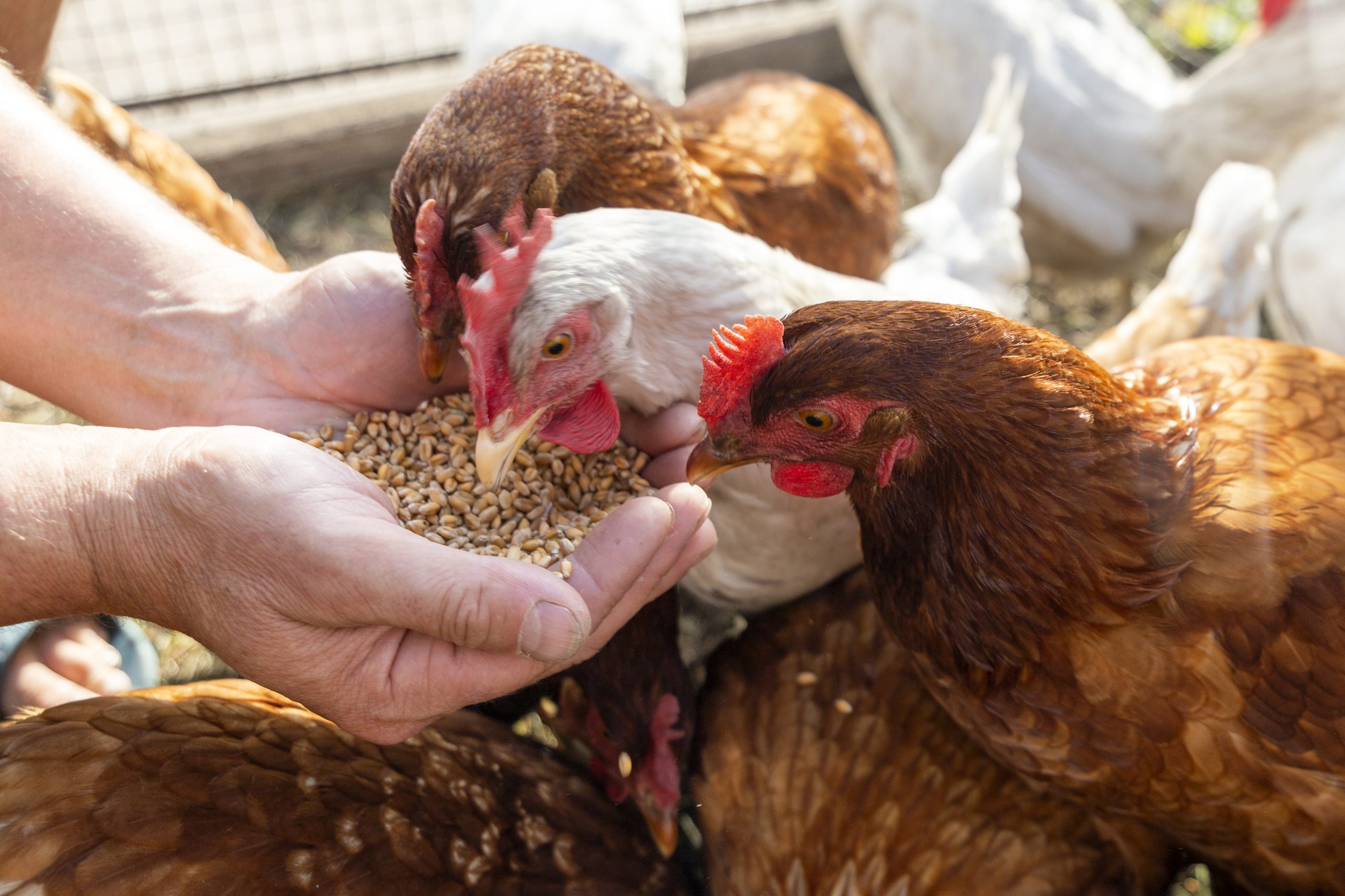
Chickens are prey to many animals, so keeping them safe and stress-free can be a full-time job. If your chickens are stressed, they will drop in egg production. Ensure that you have a secure place for your chickens at nighttime, and keep an eye out for intruders. Consider using an electric fence, at least at night, to keep your flock safe.
The bottom line is that safe, happy, and healthy chickens produce healthy and abundant eggs. If your hens have slacked off on egg production, check that they are getting everything they need. Remember, most hens are social and will enjoy daily visits and interactions with you. So, don’t forget to pet your chickens!
Happy chicken raising,
-Susan Patterson, CBHC and Master Gardener


